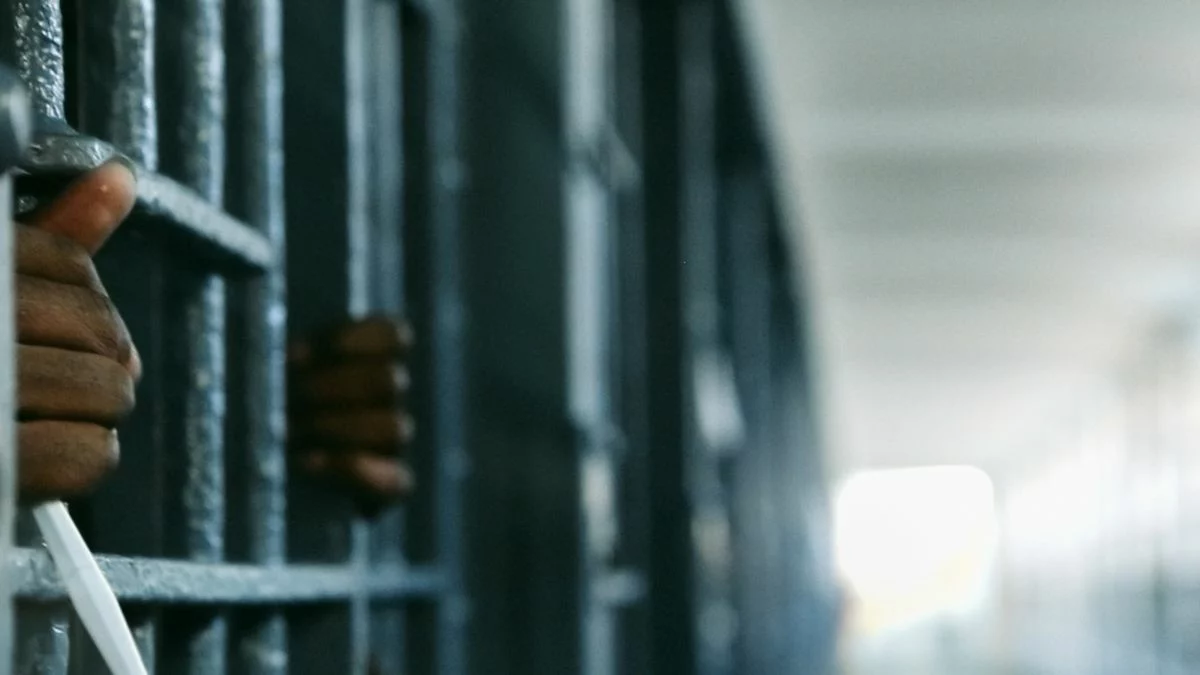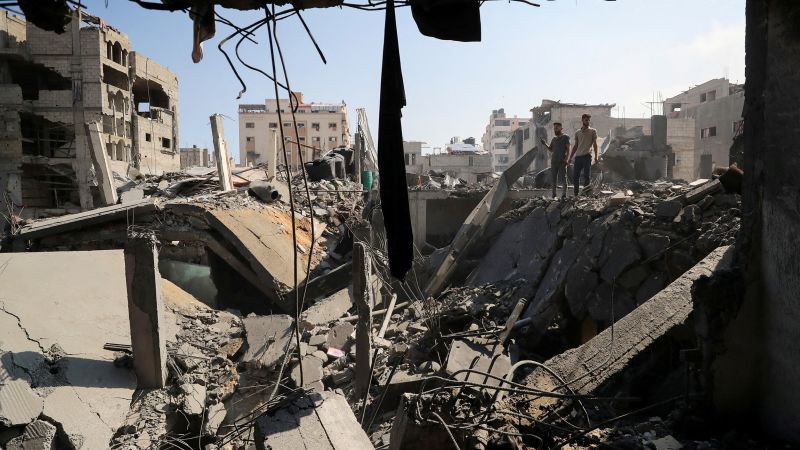Hamas-US Ceasefire Negotiations Progress
Behind the persistent efforts to secure a ceasefire in Gaza and facilitate hostage releases lies the compelling, if unlikely, story of Bishara Bahbah, a Harvard-educated economics professor from Phoenix, Arizona. His unexpected involvement began in April when he received a phone call from Hamas. Since that pivotal moment, Dr. Bahbah has been temporarily residing in Qatar, maintaining direct contact with Hamas officials and emerging as an important back-channel American negotiator.
Dr. Bahbah’s connection to the political landscape, and eventually to the Trump administration, can be traced back to January, on the eve of President Trump's inauguration. At an inauguration party hosted by Arab-Americans in Washington D.C., he was introduced as part of a group crediting themselves for helping Trump secure the key swing state of Michigan. Many Arab-Americans had notably shifted their allegiance from the Democratic party, abandoning Joe Biden due to his handling of the Gaza war. Dr. Bahbah, then president of Arab-Americans for Trump, had spent months campaigning in Michigan, echoing the sentiment that 'it can't get any worse' under Biden for Palestinians, and that Trump's pragmatism might offer new opportunities.
During early discussions, Dr. Bahbah revealed his deep ties to Jerusalem, his birthplace, and spoke of his family's Palestinian orchard and UN food card, symbols of a displaced past. Although a U.S. citizen since leaving Jerusalem in 1976, he considers it his enduring home. His efforts to connect with the Trump administration included an initiative to have Palestinian Authority President Mahmoud Abbas send a congratulatory letter to President Trump on November 6, the day after the election—a gesture Dr. Bahbah believed Trump would notice. This active campaigning and continued support by influential Arab-Americans, including Dr. Bahbah, appeared to be recognized by Trump's team, forging connections that would later prove crucial.
However, Dr. Bahbah’s support for Trump was not without its challenges. He expressed disillusionment when Trump announced he would 'own Gaza' and openly criticized an AI-generated video of Trump and Israeli Prime Minister Benjamin Netanyahu in a 'Gazan wonderland,' deeming it 'provocative and unacceptable.' Furthermore, he publicly rejected Trump’s suggestion to resettle Palestinians from Gaza to Egypt and Jordan, issuing an 'Urgent Press Release' and subsequently changing his alliance’s name from Arab-Americans for Trump to Arab-Americans for Peace. Despite these tensions, Dr. Bahbah maintained faith, viewing Trump’s controversial statements as potential 'testing the waters' and reiterating his belief that 'there is no alternative to the two-state solution.' He held an expectation, at odds with the Trump administration’s official policy, that the president would work towards rebuilding Gaza and establishing a Palestinian state alongside Israel.
The critical call came in late April from Dr. Ghazi Hamad, a senior member of Hamas, who had never met Dr. Bahbah previously. Hamas had identified Dr. Bahbah as the Palestinian-American with the most influence within the Trump administration, seeing him as a potential second channel, in addition to the Qatari government, to pressure President Trump to increase efforts for a ceasefire and hostage release. The contact was facilitated by the widow of former Palestinian leader Yasser Arafat, connecting Dr. Bahbah, who had been part of a Palestinian delegation to multilateral peace talks in the 1990s and was close to Arafat, to this new, highly delicate negotiation.
To build trust, Dr. Bahbah reached out to Steve Witkoff, Trump's Middle East envoy. Interestingly, both men, a real-estate mogul and an academic, lacked diplomatic experience, embodying Trump’s 'outside the box' approach. Witkoff initially expressed skepticism about Dr. Bahbah’s ability to secure an agreement. Dr. Bahbah, in turn, urged his Hamas contact to demonstrate seriousness to the Trump administration. This effort culminated in a remarkable breakthrough: on May 12, after 584 days in Hamas captivity, Israeli-American Edan Alexander was released. This was described as a direct deal between Hamas and the U.S., without Israeli involvement, and seen by Hamas as a 'good faith' gesture. Dr. Bahbah considers this release his deal, a testament to the vital importance of this new back-channel.
Direct talks proceeded with Dr. Bahbah meeting five Hamas officials in Doha, who then relayed messages to at least 17 other Hamas leaders in Gaza and Cairo. Dr. Bahbah, in turn, conveyed these messages to Witkoff, who was not directly involved in the Hamas talks. A Qatari source confirmed Dr. Bahbah’s 'very involved' role, despite the White House publicly downplaying his contribution as 'tangential.' The Israeli government remained unaware of his involvement until their own intelligence discovered the back-channel discussions regarding Alexander's release. Since that April phone call, Dr. Bahbah has remained in Qatar, with trips to Cairo, working tirelessly without payment to secure a final agreement, driven by his unwavering commitment to ending the war and securing a future for the Palestinian people.
In related developments, Hamas has announced its 'positive response' to the latest ceasefire proposal for Gaza, a 60-day plan presented by U.S. President Donald Trump. Trump, who has been actively pushing for a deal, indicated Israel had agreed to his terms and urged Hamas to accept. Hamas's response, while positive, included slight amendments on three key issues: the details of humanitarian aid delivery, the status of the Israeli Defence Forces within Gaza, and the language surrounding guarantees beyond the initial 60-day ceasefire. Despite these points requiring further negotiation, sources close to the discussions suggested a hopeful outlook, with Hamas expressing readiness to 'immediately enter into a round of negotiations regarding the mechanism for implementing this framework.'
A Hamas official, speaking anonymously, indicated the truce could begin as early as the following week, pending talks on the ratio of Palestinian prisoners to be released for each Israeli hostage and the specified amount of humanitarian aid. Negotiations for a permanent ceasefire and the complete withdrawal of Israeli troops from Gaza in exchange for remaining hostages would commence on the first day of the truce. Previous rounds of negotiations had faltered due to Hamas's demand for guarantees that the 60-day ceasefire would lead to a total end to the nearly 21-month-old war, a point on which Israeli Prime Minister Benjamin Netanyahu has insisted on continued fighting for Hamas's destruction. The Hamas official claimed Trump had guaranteed the ceasefire would extend beyond 60 days if necessary for a peace deal, though the U.S. has not confirmed this. Trump welcomed Hamas's 'positive spirit' to the proposal, suggesting a deal could be reached within the week.
Additionally, Hamas seeks more aid to flow through the United Nations and other humanitarian agencies. This demand arises amidst alarming reports from the UN human rights office, which recorded 613 Palestinian killings within a month while individuals attempted to obtain aid. A significant portion of these, 509 killings, were 'GHF-related,' occurring at or near distribution sites operated by the controversial U.S. and Israeli-backed Gaza Humanitarian Foundation (GHF). While the UN could not attribute direct responsibility, its spokeswoman, Ravina Shamdasani, stated it was clear the Israeli military had 'shelled and shot at Palestinians trying to reach the distribution points' operated by GHF. The GHF, through its executive director Johnnie Moore, vehemently rejected the UN figures, accusing the organization of taking data directly from the 'Hamas-controlled Gaza health ministry' and engaging in a 'disinformation campaign' to undermine their efforts in the Gaza Strip.




